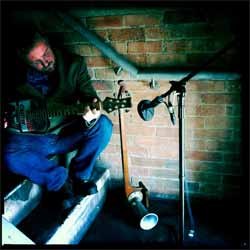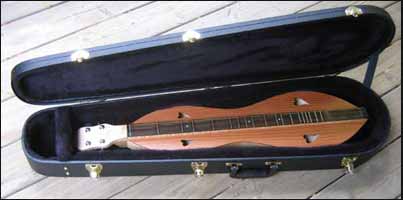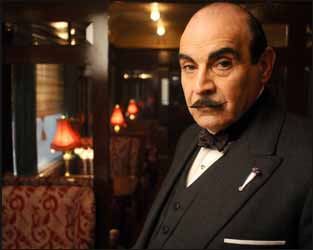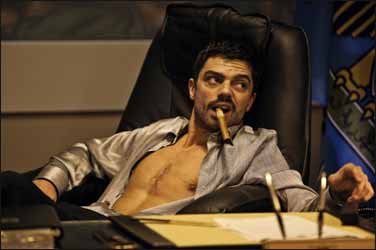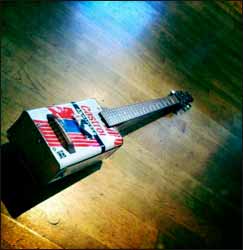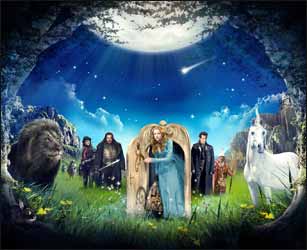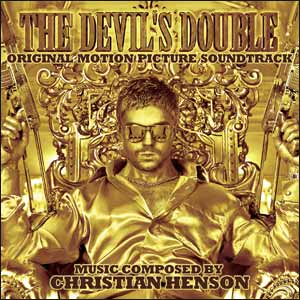|
Click here to return to the main site. Christian Henson (Composer) - The Devil's Double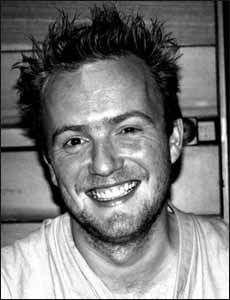 Christian Henson first became involved in film composition through his work within the UK Drum & Bass, Breakbeat and Pop scene. He has written for over 50 hit and cult TV series, combined with programming and assisting for a number of film composers including, Anne Dudley, Harry & Rupert Gregson-Williams, Dario Marianelli and Patrick Doyle. Recent highlights of Henson’s career include two films with director Christopher Smith; Triangle and Black Death, (which earned him a Best Original Score award at Screamfest LA), as well as the French blockbuster La Rafle, starring Jean Reno and Melanie Laurent, and a collaboration with Oscar winner, Dario Marianelli for Working Title’s Hippie Hippie Shake. Henson has also scored for the popular TV series Agatha Christie’s - Poirot, for which he delivered the music for four feature length specials, including Murder On The Orient Express. Darren Rea spoke with Henson as his latest soundtrack, The Devil's Double was released on CD and MP3... Darren Rea: Did you always know, from an early age, that you wanted to do something in music as a career? Where you pushed into it by parents, or did you want
I think I asked Mum to learn the piano at about 4 years old and had to wait a year until my hands were big enough. I thank her for listening to a 4 year old's whims. True privilege comes in the form of support from one's folks and they have always encouraged me in my music, I now know the odds of success though, in my field... They can't have been privy to them. Throughout my childhood there was always a sense of analysis of music, film and TV - we would often listen to music with my Mum and describe a scene that it would fit. Indeed I cannot remember a time when I wasn't aware of the artifice, and process behind TV and Film drama. I think I wanted to write film music from an incredibly young age as a consequence, indeed I think I did a radio show with some school mates when I was 8. When asked what I wanted to be when I was older I said "Film Theme Composer". DR: With the rise of computer games, do you think that as many children have CH: I think we often make the mistake of seeing music as a commodity. Whilst your question may be valid where sales are concerned I think if we were denied music we would often seek it out and make it for ourselves. We're a musical species and no shoot em-up is ever going to mute our appreciation of a good bass-line, beat and whistleable melody in my opinion.
DR: What was your first paid job and how did it feel to receive money for CH: My first paid job was as part of a cover-version duo; "Krafty & Krutch" at The Big Easy in Chelsea. £40 for 3 x 45 minute sets... Now this wasn't in the 1970's! We're talking 1993! So it was a pretty duff fee. However, the first time I took a tenner out of an ATM that I knew had come from making music I was high as a kite. DR: What's the one commission you were most satisfied with and why?
DR: Do you remember the first time you heard an orchestra play your music? CH: The first time was a 90 piece band in Prague, for Chasing Liberty. It was a thrill but one totally eclipsed by the band's performance on Les Fils Du Vent some 4 weeks later back in London. From that moment on I have vouched, and have succeeded in not recording anywhere other than London. The musicians we have here are truly mind-boggling. DR: Your soundtrack for The Devil's Double has just been released, how did you get involved with that?
DR: How did you prepare for that, was it difficult working out what indigenous sounding instruments to incorporate? Also did you have a lot of fun writing the disco anthem 'Liberation'? CH: I don't think film scores should be geography or history lessons. In fact when preparing for a recent project Black Death with Christopher Smith it was mooted that I write a "totally traditional medieval score". I was candid in my response and said "no you don't, medieval music is rubbish" (certainly in respect to the film vernacular). So we set about re-inventing music of the time based on some fairly honest and prime-evil & primordial sounds coupled with a bushel of movie cliche. The film now starts with a Tibetan Chant... but it seems to fit.
Re. 'Liberation', The Devil's Double is a massively intense film and score, so yes, it was a welcome departure. DR: You recently worked with your brother Joe for the soundtrack to CH: NO! Regrettably I'm not a team player when it comes to writing. So why stress a wonderful friendship? It's one of my favourite scores though... DR: Your work for cinema is always varied. Is this something you consciously
My assistant Sam, started working with me when I had this avalanche of period stiff come in, including The Secret Of Moonacre... an enormous undertaking. He only knew me doing this kind of stuff for a couple of years, so I think it's been surprising for him to see me return to my more electronic roots of late as it's a very different vernacular. I certainly think people are typecast. I would hate to just do horror, or comedy, but most of all action. I think it is presumed that most composers would love a good Transformers style job, but for me, action music can get incredibly tiresome to write. I guess I would always love to go where an appreciation for a good tune is... DR: Who is your biggest influence (in and outside of soundtrack composers)? CH: Soundtracks, I would have to say a dead heat between Goldsmith and Herrmann. Outside this domain Steve Reich is the man, with John Adams and Prokofiev coming in just behind. DR: Who would write the soundtrack to your life? CH: Well, I've intimated that I'm a bit of a tart, so I would be a bit put-out if my reel wasn't submitted. But I guess it would have to be Martin Phipps, because I'd like to see what he came up with for a couple of my more "colourful" ex-girlfriends. Martin is my favourite UK-based composer though, a truly original artist. DR: Do you have another interest that you'd like to pursue if you got bored
Other than that, when it all get's a bit deadline-y or specifically, on the occasion last year, that a very well respected director said to me; "Christian, I imagine you have a very good taste in music, tell me, why have you checked it in at the door for my film..." I often fantasise about being a Florist. For no other reason that I have never met an unhappy one.
The soundtrack for The Devil's Double is available to buy on CD and MP3 through Lakeshore Records Click here to buy this release on CD (UK) Return to... |
|---|
